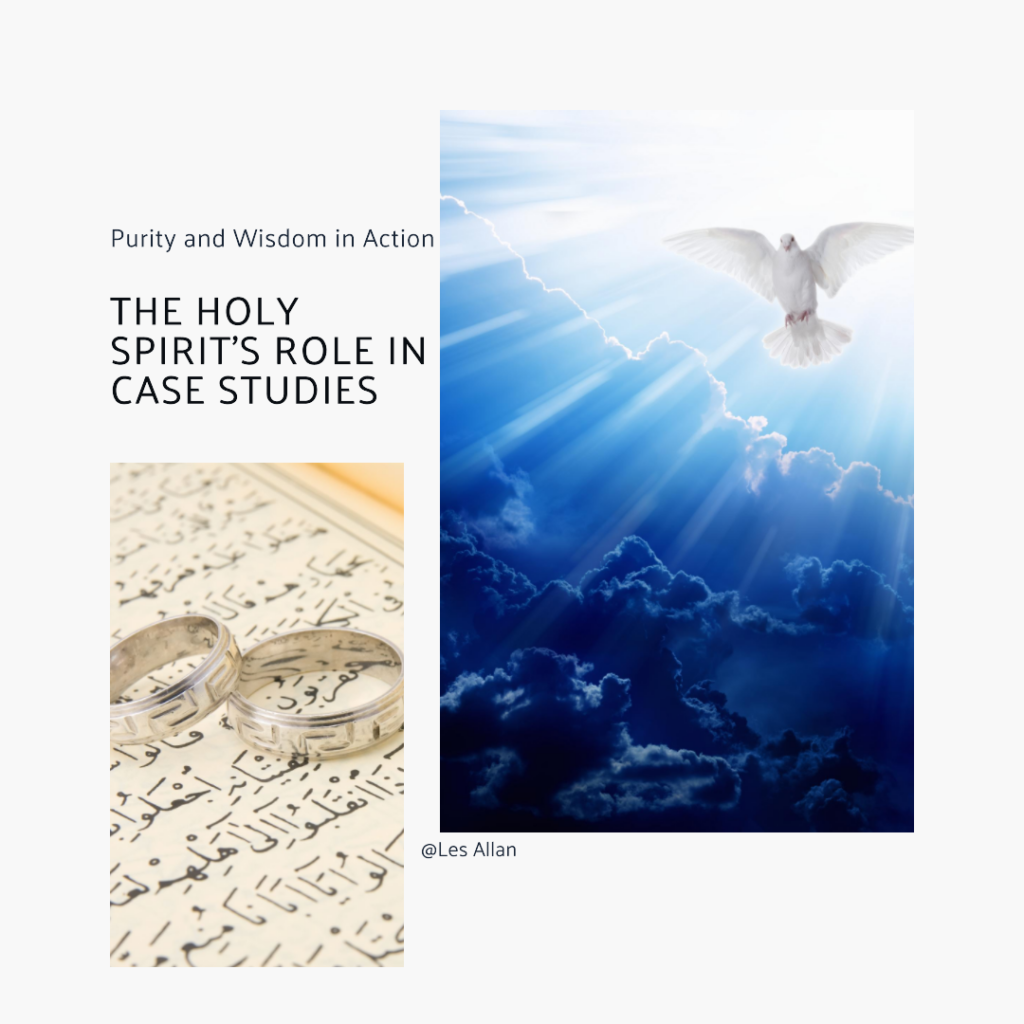Ohio Christian University
THE4050 Investigating Christian Theology II (ONLF23)
Professor Jeremy Kamer
September 28, 2023

Holy Spirit Case Study
Here is the situation. There is a new person in your church. The person is very excited by a new book he recently purchased at a local Christian bookstore. He is excitedly telling you he has not been able to put it down since it is helping him understand aspects of the Holy Spirit he has struggled grasp.
He then explains that the Holy Spirit is the creative force of God, which is referred to in the Old Testament as the “wind” or “breath” of God. The Spirit is the force and power of God that enables people to do His work in the world. There is no mention in the Old Testament of the Holy Spirit being a person.
The New Testament continues this line of reasoning with images of fire and wind being used in Acts and other books to explain God’s power in a person’s life. Additionally, the Greek word used for “spirit” in the New Testament is neuter (neither masculine nor feminine) proving that the Spirit is a force of God’s power.
How should another church member respond to this person? Below is this student’s response:
Spirit Case Study Discussion
I would first ask this church member if they would like to sit down with our Bibles and have a private conversation on the Holy Spirit’ different theological and Biblical views. I would say that I respect their enthusiasm for the book but disagree with its view of the Holy Spirit. I would say that I believe that the Holy Spirit is not just a force or a power but a person who is God Himself, and the Bible teaches this. I would then ask them if I could show them Biblical evidence to justify my opinion. Hopefully, they agree, and we can sit and talk privately.
The first thing I would then show them is where the Bible describes the Holy Spirit as having personal attributes, such as intelligence, will, emotions, and speech. For example, show them that in 1 Corinthians 2:10-11 (KJV), Paul says that the Spirit searches all things and knows the thoughts of God. In Acts 16:6-7 (KJV), Luke says that the Spirit forbade them from going to Asia and tried to go to Bithynia. In Romans 15:30 (KJV), Paul asks the believers to strive together with him in prayers through the Spirit. In Revelation 2:7 (KJV), John says that the Spirit speaks to the churches. These are all qualities that a force or a power cannot have.
In addition to sharing these Words of God, I would also hope to inspire them by showing them the powerful actions of the Holy Spirit. I would highlight verses such as John 14:26 (KJV), where Jesus promises that the Holy Spirit will teach all things and remind us of His words. I would also mention John 16:13 (KJV), where Jesus assures us that the Holy Spirit will guide us into all truth and reveal to us things to come. Furthermore, I would point out the comforting words in John 14:16-18 (KJV), where Jesus promises that the Holy Spirit will always be with us as another Helper. When sharing these verses, I would emphasize that these are not actions that a mere force or power could do, but rather the work of a loving and personal Spirit.
Finally, I would like to share with them how the Bible reveals the Holy Spirit as God Himself, equal to the Father and the Son. Acts 5:3-4 (KJV) shows that lying to the Holy Spirit is lying to God. In 2 Corinthians 13:14 (KJV), Paul gives a benediction in the name of the Father, the Son, and the Holy Spirit, revealing their equality. In Matthew 28:19 (KJV), we see that Jesus commands us to baptize in the name of the Father, the Son, and the Holy Spirit, showing that the Holy Spirit is not a lesser or subordinate being to God, but one with Him. These passages should remind them that the Holy Spirit is an integral part of the Holy Trinity and deserves the same honor and respect as the Father and the Son.
Based on these Biblical pieces of evidence, I would ask them if they now believed that the Holy Spirit is not just a force or a power but a person who is God Himself. That He deserves our respect, honor, and love. He is our Helper, Teacher, Comforter, and Friend; He is God with us and in us. I would then ask them if they would be open to reconsidering their book’s perspective and learning more about Him from the Bible and His work in your life.
Blessings,
Lesallan

Hello All! This is how I would respond if I were the other church member:
I appreciate your effort in explaining the role and nature of the Holy Spirit in relation to God and creation with the other church member in this case study. These are some of the possible responses that I would give you if I were the church member you were sharing your thoughts on the Holy Spirit.
The following are my questions and comments regarding your answer to the Holy Spirit and the Trinity. Firstly, how do you justify your belief in the Trinity based on the Biblical texts and historical context? Second, where do you see the Holy Spirit’s involvement in the creation narrative of Genesis or anywhere else in the Old Testament? Third, how do you define and measure the degree of the Holy Spirit’s presence and activity in different times and places? Fourth, how do the symbols of the promise of the coming of the Holy Spirit in the Hebrew Bible relate to the actual fulfillment of the promise in the New Testament? Fifth, how does the seal or stamp of the Spirit affect our identity, security, and destiny as God’s children? How does the Spirit enable us to experience Christ’s presence and power daily? Seventh, how do you reconcile John 14:26 with other verses that suggest the Son also sends the Spirit or that he proceeds from both the Father and the Son? Eighth, how do you distinguish between the two meanings of “spirit” and their implications for our understanding of God and ourselves?
These are just a few questions and comments we as students must be prepared to expect and answer when sharing our point of view of the Holy Spirit – Blessings.
Lesallan


